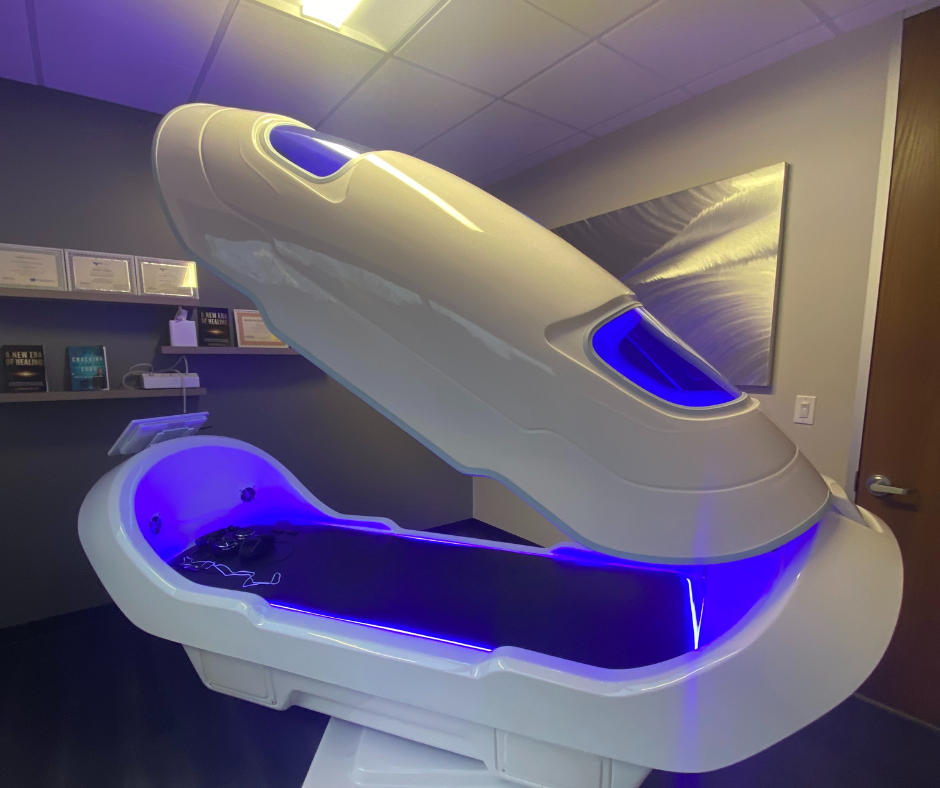5 Surprising Benefits of Botox
We all know Botox is famous for making wrinkles disappear, but did you know it has some other pretty amazing perks? Beyond just smoothing out those...
.png)
On the go? Listen to the article instead!
Explore the transformative role of Botox in managing chronic migraines, offering new hope for sufferers seeking relief.
Chronic migraines are a debilitating condition characterized by severe headaches that occur on 15 or more days per month, with at least 8 of those days involving migraine symptoms. These symptoms can include throbbing pain, nausea, sensitivity to light and sound, and visual disturbances. The impact of chronic migraines on an individual's quality of life can be profound, affecting their ability to work, maintain relationships, and perform daily activities.
The constant and unpredictable nature of chronic migraines often leads to emotional distress, anxiety, and depression. Sufferers may find themselves in a cycle of pain and medication overuse, which can further complicate their condition. Understanding the full scope of how chronic migraines affect individuals is the first step in recognizing the need for effective treatments like Botox.
Botox, or botulinum toxin type A, is a neurotoxin that works by blocking the release of certain neurotransmitters that are involved in pain transmission. When injected into specific areas of the head and neck, Botox prevents the activation of pain networks in the brain. This reduces the frequency and severity of migraine attacks.
The treatment involves multiple injections around the head and neck, targeting muscles that are often involved in migraines. The effects of Botox can last for several months, making it a long-term solution for many sufferers. The initial results can take a few weeks to become apparent, but many patients report significant relief from their migraine symptoms.
While Botox is widely recognized for its aesthetic applications, such as smoothing wrinkles and enhancing facial features, its medical uses are equally transformative, particularly in the treatment of chronic migraines. In the aesthetic realm, Botox temporarily paralyzes muscles to reduce the appearance of facial lines, offering a rejuvenated look. However, when used medically, as discussed earlier, Botox functions differently. It targets the nervous system to block the pathways responsible for triggering migraine pain, thereby providing long-term relief from this chronic condition. This dual functionality highlights Botox's versatility as both a cosmetic and therapeutic agent, making it a unique player in the fields of dermatology and neurology.
Undergoing Botox treatment for chronic migraines is a relatively straightforward process. The procedure typically takes about 15-30 minutes and is performed in a doctor's office. Patients are usually asked to lie down or sit in a comfortable position while the doctor administers the injections.
The injections are given in multiple sites around the head and neck, including the forehead, temples, and back of the neck. Most patients experience only mild discomfort during the injections, often described as a slight pinching or stinging sensation. After the procedure, patients can usually return to their normal activities immediately, with minimal downtime required.
Many patients who have undergone Botox treatment for chronic migraines report significant improvements in their quality of life. Stories of individuals who have suffered for years with debilitating migraines finding relief through Botox are common.
For example, Sarah, a 35-year-old marketing executive, shared that Botox treatments have reduced her migraine days from 20 per month to just a few. She can now enjoy social activities and perform her job duties without the constant fear of a migraine attack. Such testimonials highlight the potential of Botox to transform the lives of chronic migraine sufferers.
One of the concerns for many patients considering Botox for chronic migraines is the cost and insurance coverage. The good news is that many insurance plans do cover Botox treatment for chronic migraines, especially if other treatments have been unsuccessful.
Patients should check with their insurance provider to understand the specifics of their coverage, including any pre-authorization requirements. It's also helpful to consult with the healthcare provider's office, as they often have experience navigating insurance claims for Botox treatments and can assist with the necessary paperwork.
While Botox is primarily used to treat chronic migraines by blocking neurotransmitters that signal pain, fillers serve a different purpose in cosmetic treatments. Unlike Botox, which relaxes muscles, fillers are substances designed to add volume and smooth out wrinkles by literally "filling" the skin. Commonly made from hyaluronic acid, a substance naturally found in the skin, fillers are injected to restore lost volume and stimulate collagen production, leading to a more youthful appearance. While both treatments involve injections, their uses and effects on the body are distinctly different, catering to diverse needs in the realm of medical and cosmetic treatments.
If you or a loved one suffers from chronic migraines, it's worth exploring Botox as a treatment option. Now introducing Botox Tuesdays at OhZone Clinics! Join us every Tuesday for our exclusive Botox treatments and give your week a lift. These sessions are in high demand, and appointments are filling up fast. Don't miss your chance to experience the care and expertise of our professionals. Make every Tuesday special at OhZone Clinics—book your spot or schedule a consultation today!
.png)
We all know Botox is famous for making wrinkles disappear, but did you know it has some other pretty amazing perks? Beyond just smoothing out those...

The Theta Chamber is an advanced system that utilizes a combination of therapies to induce a state of deep relaxation and stimulate the body's...

At OhZone, we provide the Theta Chamber to assist in rewiring and reprocessing your thoughts and thinking patterns. But what benefits does the Theta...